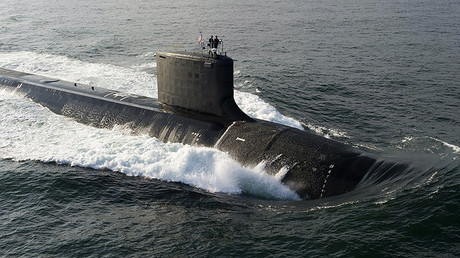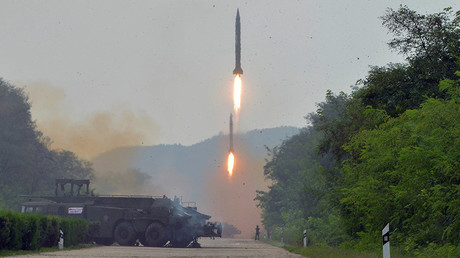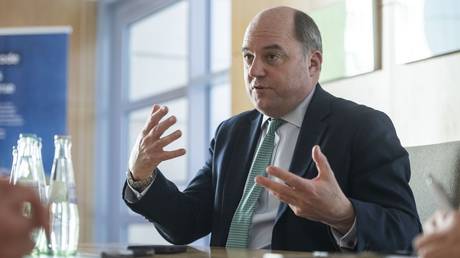US wants ‘freedom of action’ in nuke tests, ‘negative’ to intl commitments – ex-IAEA chief Blix
Swedish diplomat Hans Blix, a former head of the International Atomic Energy Agency (IAEA), has criticized Washington for its failure to progress with the Comprehensive Nuclear-Test-Ban Treaty (CTBT), ratified by most of the world’s countries.
"The US Senate in particular has been very negative to the ratification so far. I think this has its roots in a view of the Senate to keeping a freedom of action for the United States [regarding international nuclear weapons control agreements],” Blix told the media in Moscow on Wednesday.
Speaking ahead of a conference on the non-proliferation of nuclear weapons, which opens in the Russian capital on Thursday, the Swedish politician pointed out that Washington's position "hits not only the CTBT but also hits the START agreement [Strategic Arms Reduction Treaty between the US and Russia] which was ratified, but with a great deal of difficulty."
The international community needs to "exercise diplomatic talents" for the CTBT treaty to finally enter into force, he added, saying that in the current international environment the agreement to ban nuclear tests "should be the least difficult of all arms control issues."
Adopted by the UN General Assembly and opened for signature in 1996, the treaty to ban all nuclear explosions worldwide has been signed and ratified by most nations. Only a few states, including the US and North Korea, remain to take further action for the treaty to become active.
Back in 2013, then-US President Barack Obama announced that he planned to push for Washington to ratify the CTBT, but so far this has not happened.
"We've noticed that the US has a great difficulty with ratifying any international agreements in general," Russia's deputy foreign minister, Sergey Ryabkov, said ahead of the Moscow conference.
READ MORE: Vanity & insanity: Trump gambles on Iran nuke deal
"Unfortunately, there is no lobby among American legislators for the treaty to go forward to the Senate," he said, adding that Washington's stance might be affecting the position of other countries which have yet to sign or ratify the CTBT.
Pyongyang's nuclear tests also "seriously complicate" the activation of the treaty, the Russian diplomat said, but added that North Korean actions are fueled by the situation in northeast Asia, especially by massive military exercises held by a group of countries, including the US, close to North Korea’s borders.
"The CTBT is an achievement of all its participants and is aimed to serve the well-being of entire humankind. Russia is proud to be part of the treaty, which we see as the only universal international instrument to ban nuclear tests, which has no alternatives," Ryabkov said.
Meanwhile, the executive secretary of the CTBT Organization, Lassina Zerbo, said the body is working with all eight countries – China, Egypt, India, Iran, Israel, North Korea, Pakistan and the US – which haven't yet signed or ratified the treaty "to see how we can prove the importance of the CTBT in contributing to their national security and international security in general."
Zerbo expressed hope that there might be a chance to negotiate with Pyongyang on joining the treaty, as North Korean officials will be present at the Moscow conference, RIA Novosti reports.





